Kittens rely on meowing to communicate their wants, needs, and feelings. Most kittens meow at their siblings and mothers for the first few weeks of their lives but they primarily meow at humans as adults.
A kitten’s meows can have different tones depending on what they are trying to communicate. Some kittens are more vocal than others, while some kittens are quieter, and reserve their meows for specific needs like food.
If you are interested in learning more about when, how, and why your kitty is meowing, this article has the answers for you.

When Do Kittens Start Meowing?
Kittens can start mewing a few days after they are born. Newborn kittens are deaf and blind but they will mew and wriggle if they are handled. However, their mews will sound more like high-pitched whines or chirps rather than a distinguishable “meowing” sound. Kittens make sounds soon after birth as it’s an important form of communication between them and their mother. Mewing usually stops at about 2-3 months old.
As kittens get older, their mews turn into meows. Their noises start to become more distinctive around the same time they begin walking and playing with their siblings. It’s normal for their meows to become deeper as they get older and they lose their adorable high-pitched meows by about 9-14 months of age.
Kittens generally produce a wider range of meows with various tones, volume, and duration as they get older. It’s normal for kittens to meow more often than adult cats because they are dependent on their mother for food, warmth and protection, so they meow to make sure those needs are met.
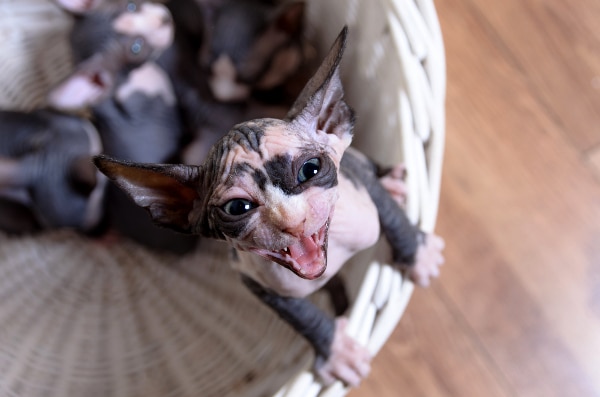

How Do Kittens Meow?
If you have been listening to a kitten’s meows for some time, you might notice that their meows have different tones. Although you may find it difficult to decipher what their different meows could mean, each tone has a meaning that mother cats can interpret.
Kittens produce much higher-pitched meows than adult cats. The maturity of a kitten’s vocal cords, larynx, and sinuses generally affects the pitch of their meows. Their meows and other vocalizations start to sound deeper when their vocal cords mature.
Cats have a vocal fold on each side of the larynx which they use to make both high pitched meows and low pitched purring sounds. Connective tissue embedding in the vocal folds are used to produce the low-frequency sound of purring.

Why Baby Cat’s Meow
Kittens primarily meow to communicate specific needs to their mother. These needs range from hunger to warmth, and protection. However, they can also meow to communicate these needs to us or to express their emotions. Some kittens may also meow because they are looking for attention or want to alert that something is wrong. Mother cats will communicate with their kittens by meowing too.
As kittens get older, they generally start meowing less towards their mothers and more towards people instead. This is likely because cat to cat communication amongst adult cats very rarely involves a meow. They use their tails, whiskers and body language when communicating with other adult cats. Communication through meowing is mostly reserved for cats to “speak” to their humans, once adulthood is reached.
Cats might start to meow at us and quickly realize that their meow makes things happen for them; they get fed or cuddles or let outside. This positive reinforcement means that cats continue to meow at their humans in order to get what they want or need.
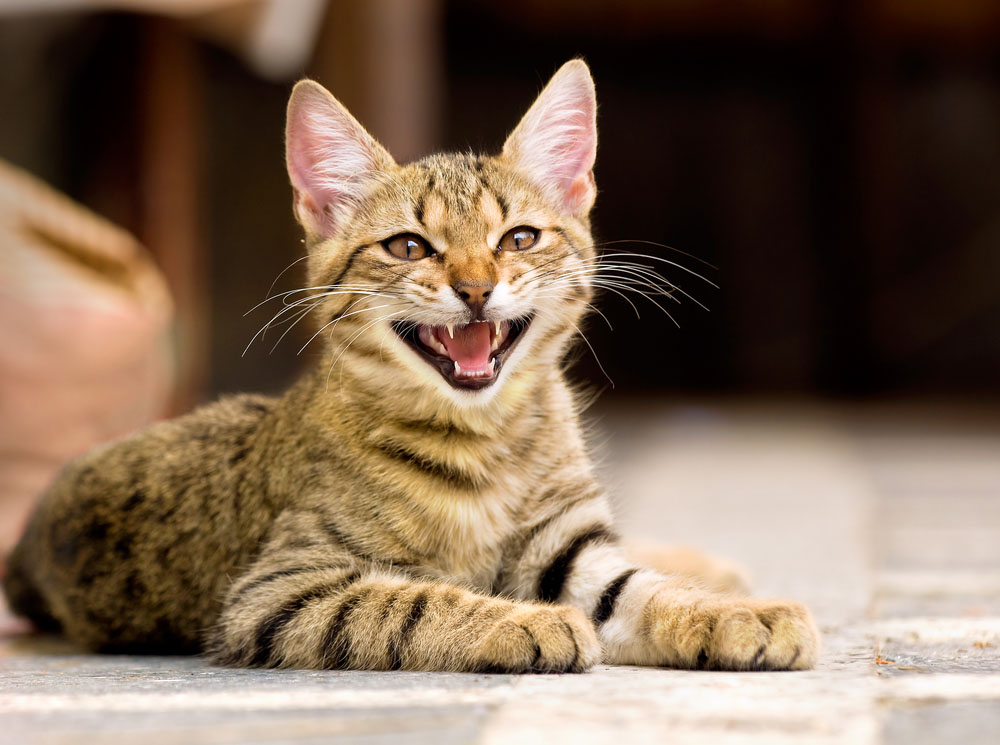

Conclusion
Kittens start mewing when they are only a few days old. They use these noises to communicate with their mother and she meows back at them. Their meows generally sound much higher pitched than adult cats because their vocal cords and larynx haven’t matured yet.
Kittens primarily meow to have one of their needs met, such as hunger and warmth. They also meow to express themselves to humans and demand attention.
Featured Image Credit: Chan Deshpong, Shutterstock
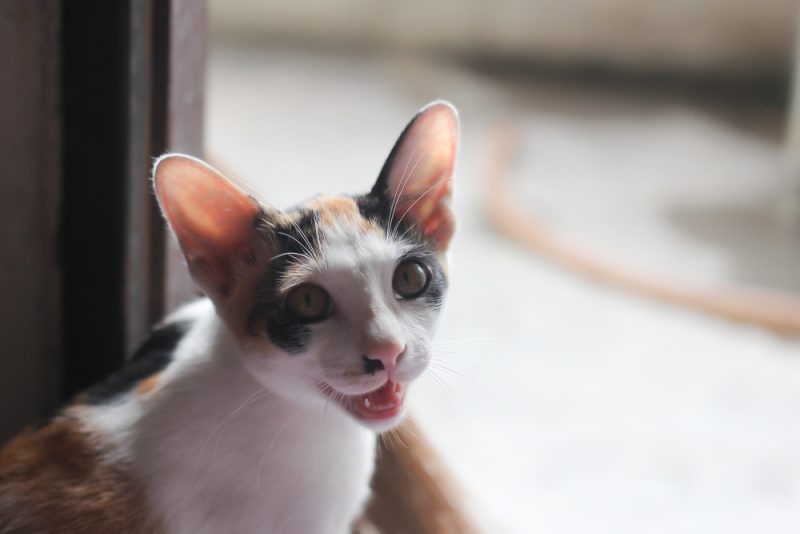

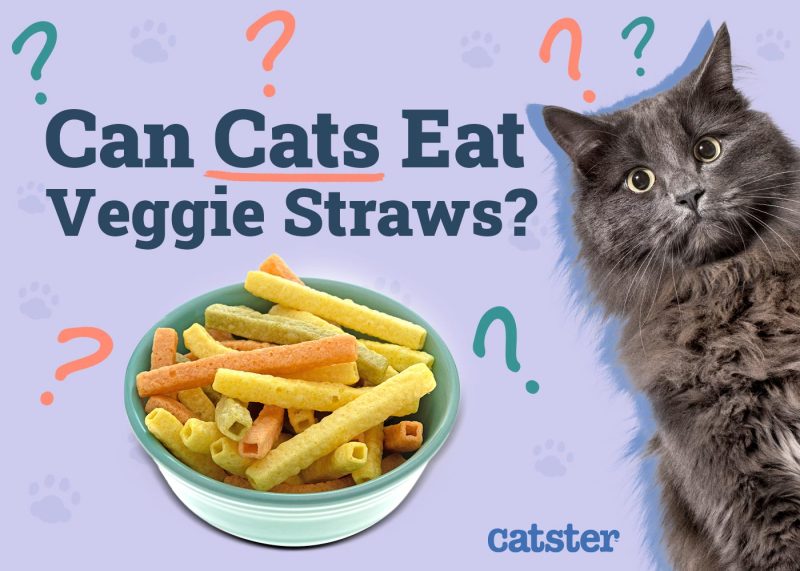
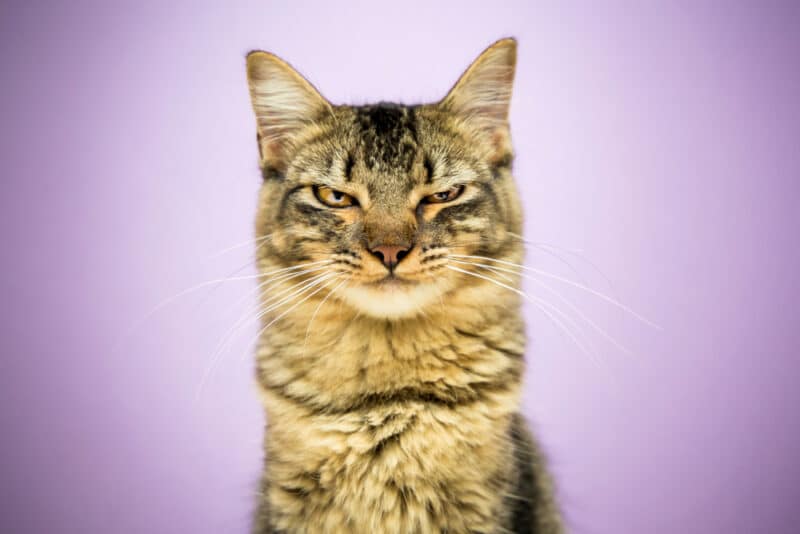
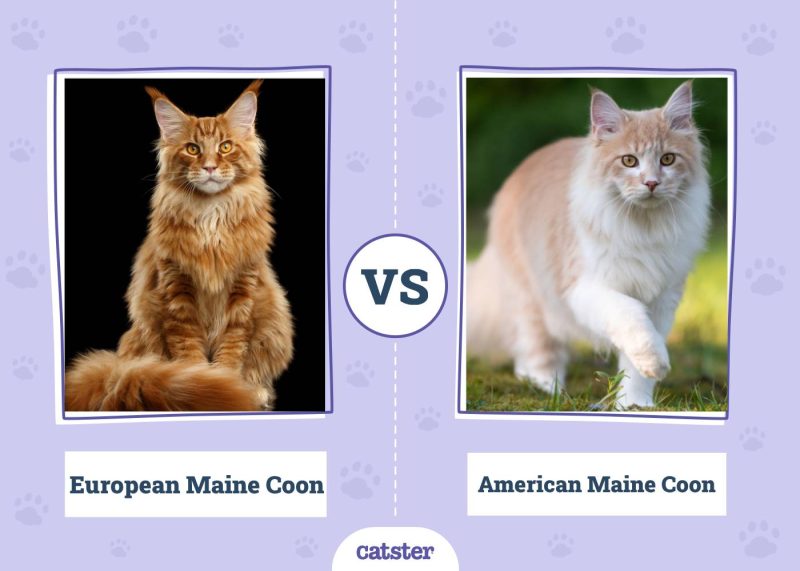
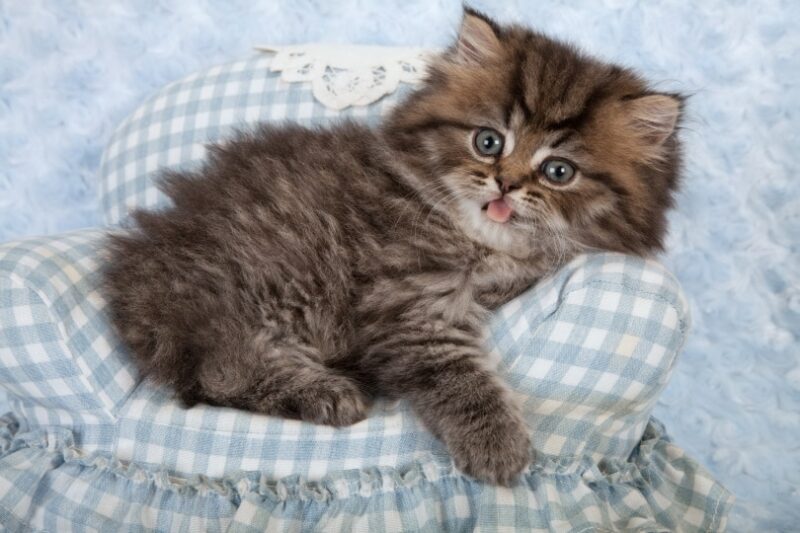
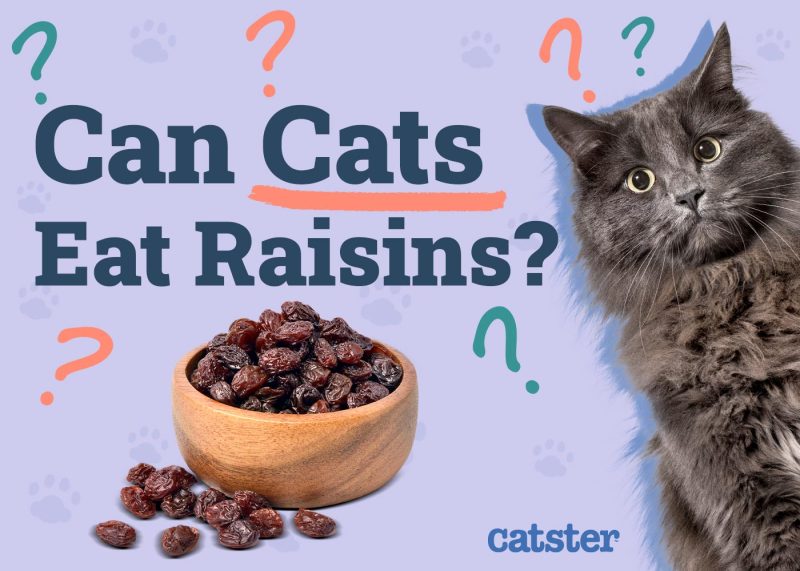
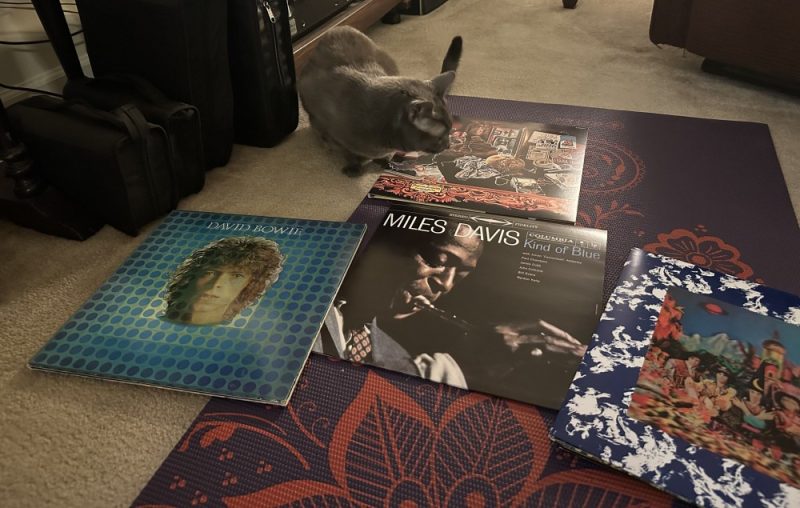

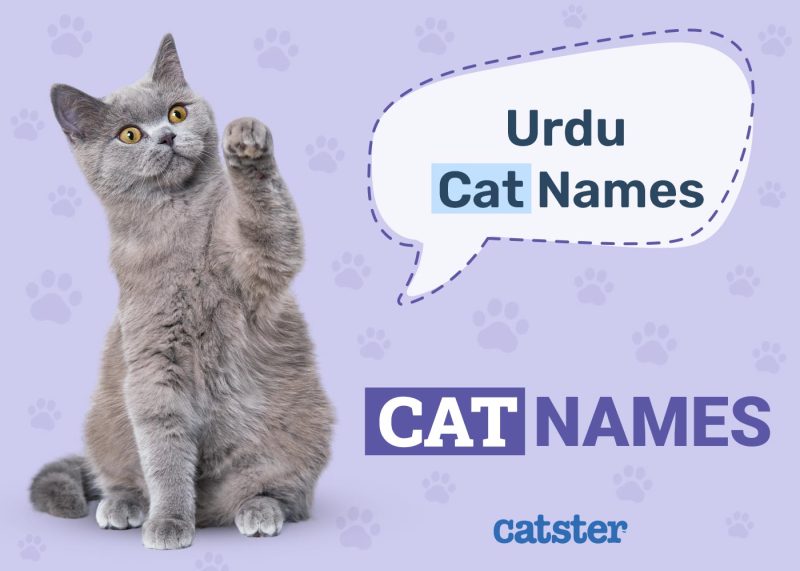
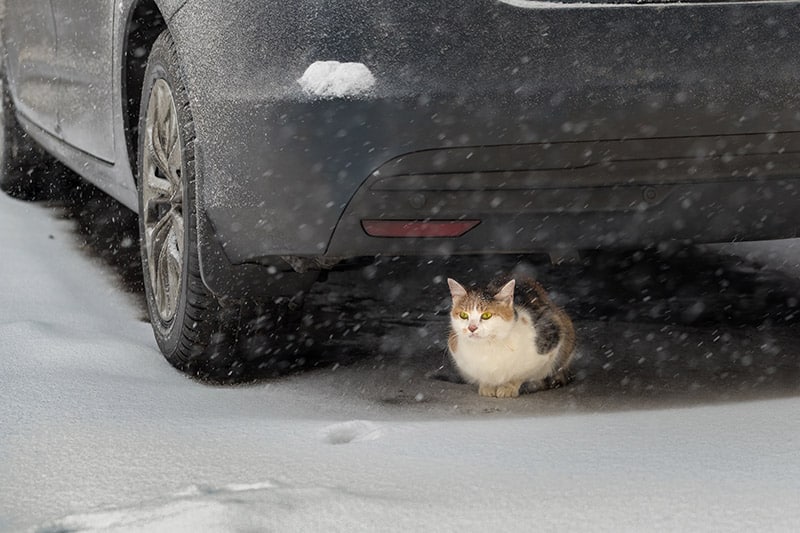
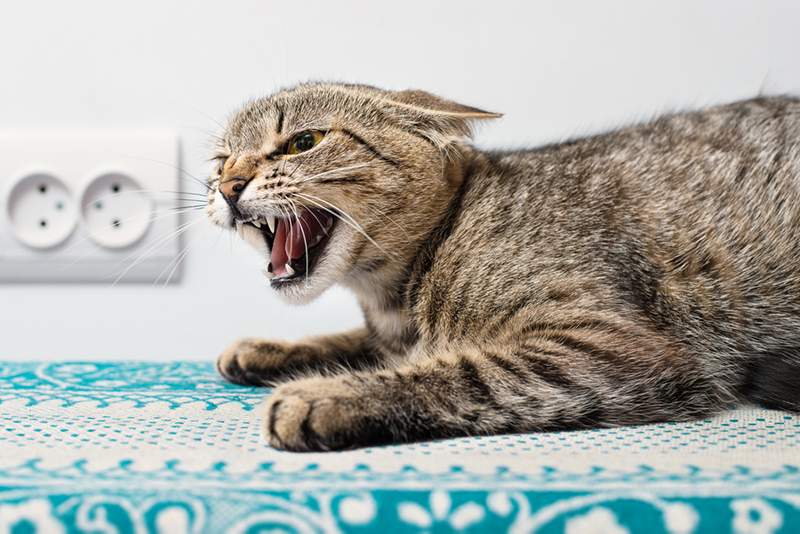
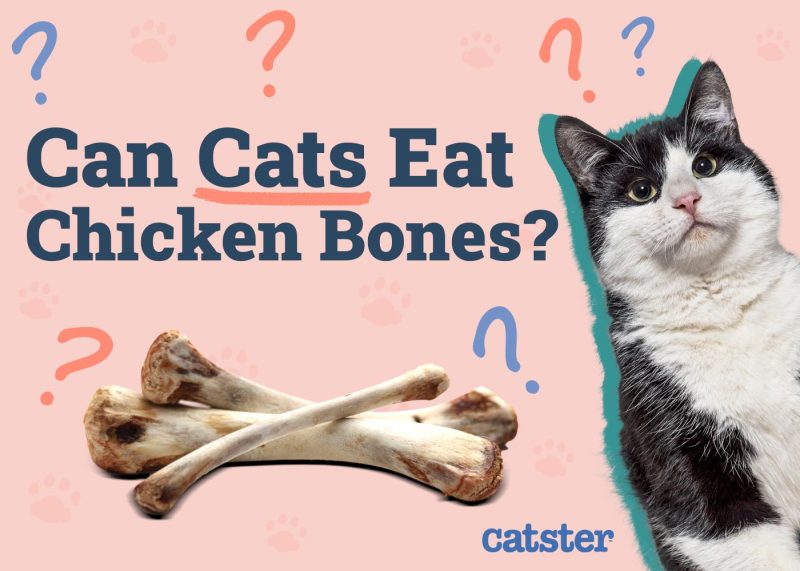

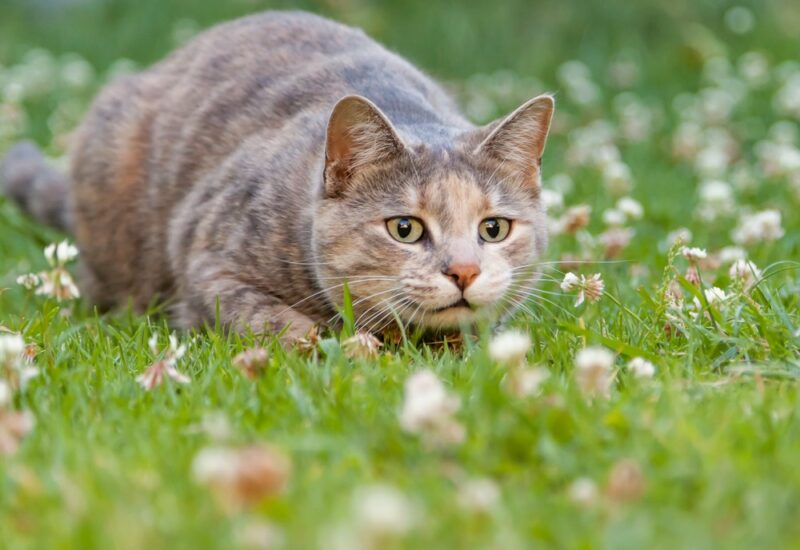

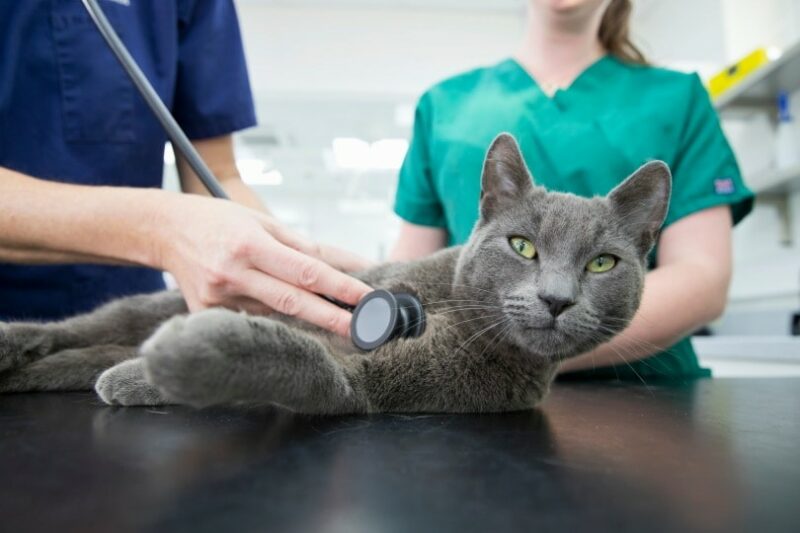
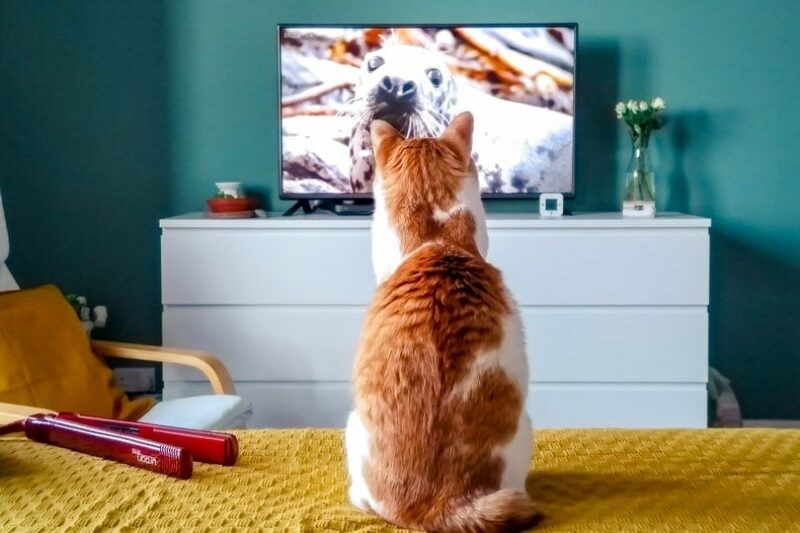

2 Responses
I found this kitty alone in 205 degree heat. He was only about 3 weeks old. Anyways he was dehydrated and very hungary and so skinney.
Hes all well now. This Kitty does not meow at all. He can purr but that's it.
I was wondering if you know why.
Thank you.
HI Jennifer,
Thank you for sharing your story and for rescuing that little kitty—it sounds like you’ve given him a second chance at life! It’s heartwarming to hear that he is doing better now.
Regarding your concern about him not meowing, there could be several reasons why a kitten might not vocalize. Some kittens are naturally quieter than others, while some may have experienced stress or trauma that affects their behavior.
If you’re still concerned about his lack of meowing or if he shows any other unusual signs, it might be helpful to consult with a veterinarian. At Pangovet.com, we offer online consultations where you can speak with one of our veterinarians who can provide more insight and guidance tailored to your kitten’s situation.
Best wishes,